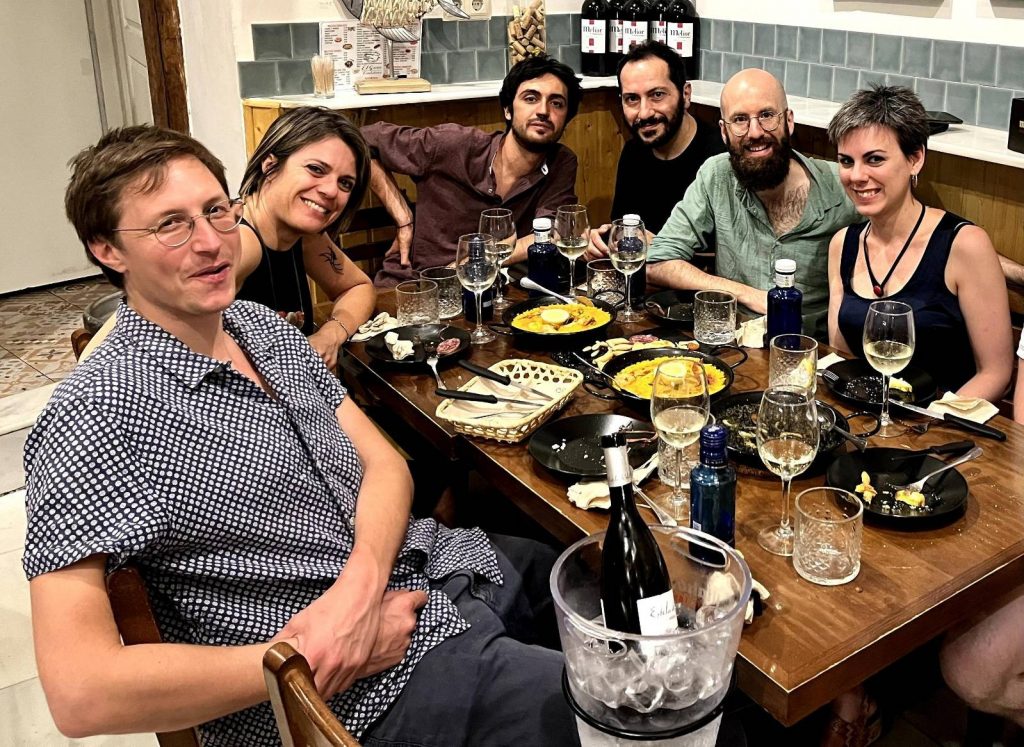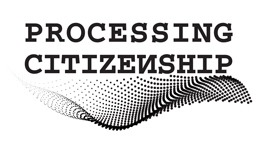Five Europeans in Madrid – Our EASST conference and travel diary

After four years, from July 6th to 9th the first EASST conference in person since Lancaster took place in Madrid. It was a very appreciated opportunity for the European (and beyond) STS community to meet and weave our professional, collegial and friendship networks after so long. We were there, as well, presenting our recent research outcomes. Processing Citizenship was even invited to open the dances with a plenary lecture by the PI
—————————————-
From July 6th to 9th the first EASST conference in person since Lancaster took place in Madrid. Indeed, the last joint EASST/4S conference was held in “virtual Prague” in 2020. For four years the European STS community has not been able to meet, and this conferences was welcomed as a much needed opportunity to meet and weave our professional, collegial and friendship networks after so long.
Processing Citizenship participated in full, and was even invited to open the conference with a plenary lecture by PI Annalisa Pelizza titled “Scripts of Alterity and the co-production of knowledge and order at the European border”. The lecture asked which European orders are produced together with the creation and circulation of knowledge about people on the move. It argued, first, that we are witnessing the return of overlapping jurisdictions, to some extent (but not completely) similar to those which characterized pre-modern times. Second, it proposed the notion of “Scripts of Alterity” to conceptualize the exercise of critical examination that reveals authorities’ normative agendas and rationalities. Such endeavour nicely complemented Amade M’charek’s second plenary lecture about “Vital Elements and Postcolonial flows: Attending to migrant death and the possibility of life.” As Annalisa has put it: “presenting Processing Citizenship’s findings, epistemological choices and interpretation of the European order at EASST Madrid 2022 has been a great achievement for our work, and an exciting stepstone that summarizes six years of difficulties and commitment, attempts and visions.”
Annalisa Pelizza also proposed a framework to analyse interoperability as “a multi-scalar sociotechnology” on July 7th at the “Techno-politics of interoperability” panel organized by Jan-Hendrik Passoth and Silvan Pollozek (European New School of Digital Studies). Chiara Loschi and Paul Trauttmansdorff gave a presentation entitled “The technopolitics of expertise: shaping an interoperable border regime” at the same panel. Chiara and Paul discussed the interaction and organized practices of security and law enforcement experts in the European Union as well as their role in shaping interoperable digital EU borders. The paper was received with much interest and lively debate.
Wouter van Rossem presented instead at the panel “Practices and politics of digitalization: work and organization in STS.” His presentation was titled “Configuring identity matching: coping with uncertainty in bureaucratic practices of identification” . Drawing on data from fieldwork at a software supplier, he showed how hureaucratic work practices of identification at the Immigration and Naturalization Service in the Netherlands are entangled with embedded assumptions of tools for matching identity data. As such, his findings on the otherwise less visible work of managing migrants’ data contributed to the panel’s debate on the invisible/everyday use of digital technologies in work and organizations.
Finally, Lorenzo Olivieri’s paper “Ethnographic research and game design: engaging migrants in the design of migration infrastructures” attracted much curiosity and interest in the context of the panel “Making liveable worlds through reflexive methods: care and intervention in STS research”. The goal of the presentation was to illustrate a situatated intervention developed in the context of Lorenzo’s ethnographic research. Drawing on participatory design, design justice and STS making and doing, the intervention sought to involve migrants in the re-design of the administrative procedures to which they are subjected during their migration journey. To achieve this goal, Lorenzo designed a role-playing game trying to reproduce some of the knowledge asymmetries and power relations shaping migration control.
Beyond the formal panels and meetings, the actual richness of travelling together to Madris has been the opportunity to discover the team’s peculiarities in an informal setting, and even playing ‘the ethnographer on the bench’ in the hot but lively Madrid neighbourhood of Lavapies!
